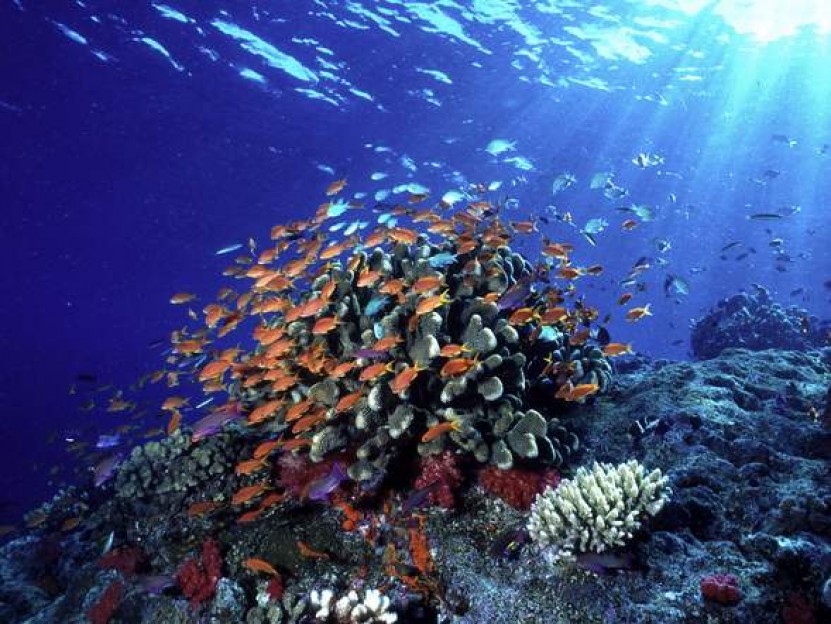Marine Life Cut By Almost Half In 32 Years

The World Wide Fund for Nature claims human activities are "sowing the seeds of ecological and economic catastrophe".
Marine life is disappearing faster than conservationists have feared, according to a report published by the World Wide Fund for Nature (WWF).
A study of data of global data on 1,234 species - ranging from sea birds to sharks - shows populations declined by 49% on average between 1970 and 2012.
The figure is 10% higher than conservationists' previous best estimate.
WWF claims the Living Blue Planet report, which is based on work carried out by the Zoological Society of London, shows a catastrophic loss of marine life which amounts to a crisis.
"By over-exploiting fisheries, degrading coastal habitats and not addressing global warming, we are sowing the seeds of ecological and economic catastrophe," said Dr Louise Heaps, chief advisor on marine policy at WWF-UK.
The report claims over-fishing and climate change are mainly to blame for halving global fish stocks, with the deep sea fish population down 72%.
It says rising water temperatures and increasing acidity have left three quarters of coral reefs under threat.
There are also fears that a quarter of the world's sharks, rays and skates could become extinct.
WWF is calling for more protection of vulnerable marine habitats like those on Spurn Point, in East Yorkshire, where beds of eel grass have been saved from damage with a bylaw preventing anglers from digging for bait.
Andrew Gibson from the Yorkshire Wildlife Trust told Sky News that the slender eel grass is essential for small organisms at the bottom of a shrinking food chain.
"That protection has allowed the expansion of the eel grass beds. So we can make changes, we can improve the marine environment, but there are a lot of pressures on it," he said.
WWF said more than half of UK fishing is now classed as sustainable and praised Scottish government proposals for better protection of sensitive marine environments, but called on Westminster to do more in England.
Source : http://news.sky.com/story/1553278/marine-life-cut-by-almost-half-in-32-years



